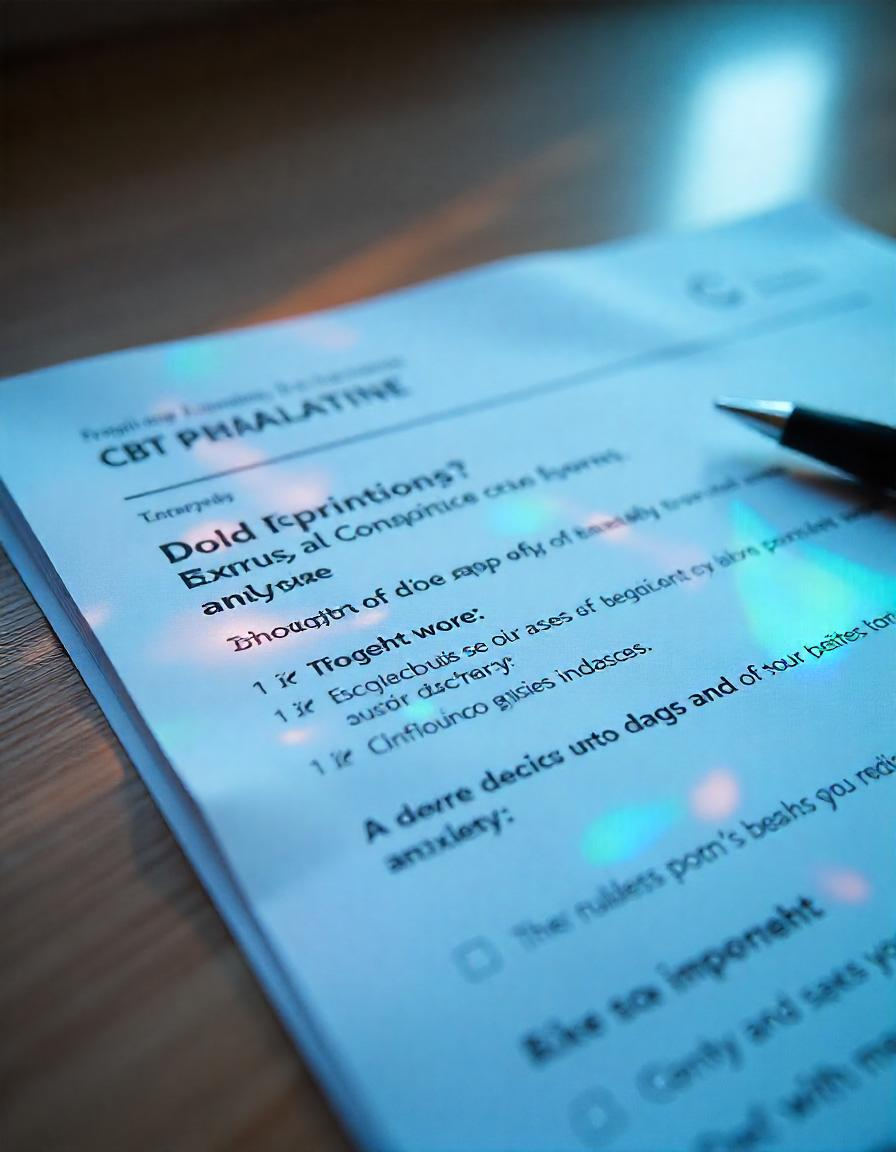Cognitive Behavioral Therapy (CBT) for Anxiety: How It Works
by admin

Anxiety can disrupt daily life, making even simple tasks feel overwhelming. Cognitive Behavioral Therapy (CBT) is a proven method to help individuals manage anxious thoughts and regain control. By focusing on patterns of thinking and behavior, CBT offers practical tools for long-term relief.
Understanding CBT for Anxiety
CBT is a structured, evidence-based approach that helps individuals identify and challenge unhelpful thoughts. The therapy encourages healthier thinking patterns and promotes coping strategies to reduce anxiety symptoms.
How CBT Helps with Anxiety
CBT works by addressing the thought-behavior cycle that fuels anxiety. Key techniques include:
- Cognitive Restructuring – Identifying and reframing negative or irrational thoughts.
- Exposure Therapy – Gradual exposure to anxiety-provoking situations to reduce fear.
- Behavioral Activation – Encouraging engagement in enjoyable or meaningful activities.
- Relaxation Techniques – Practicing mindfulness, deep breathing, or progressive muscle relaxation.
- Problem-Solving Skills – Developing strategies to manage stress and uncertainty.
Steps Involved in CBT for Anxiety
A typical CBT program follows a structured approach, including:
- Identifying Triggers – Recognizing situations or thoughts that cause anxiety.
- Challenging Negative Thinking – Examining unhelpful beliefs and replacing them with rational perspectives.
- Gradual Exposure – Facing fears in a controlled and manageable way.
- Developing Coping Mechanisms – Learning techniques to manage anxiety in real-time.
- Tracking Progress – Using journals or worksheets to monitor thoughts and behaviors over time.
Benefits of CBT for Anxiety
- Provides long-term tools for managing anxiety.
- Focuses on skill-building rather than reliance on medication.
- Backed by extensive research and widely recommended by professionals.
- Can be adapted to individual needs, including online or in-person sessions.
Is CBT Right for You?
CBT is effective for various anxiety disorders, including generalized anxiety disorder (GAD), social anxiety, panic attacks, and phobias. If persistent worry or fear interferes with daily life, seeking a therapist trained in CBT can be a valuable step toward recovery.
Final Thoughts
Cognitive Behavioral Therapy is a powerful tool for reducing anxiety and building resilience. By changing thought patterns and behaviors, individuals can regain confidence and improve overall well-being.
Taking control of anxiety starts with small steps. Explore CBT techniques to cultivate a healthier mindset and a more balanced life.
Anxiety can disrupt daily life, making even simple tasks feel overwhelming. Cognitive Behavioral Therapy (CBT) is a proven method to help individuals manage anxious thoughts and regain control. By focusing on patterns of thinking and behavior, CBT offers practical tools for long-term relief. Understanding CBT for Anxiety CBT is a structured, evidence-based approach that…
